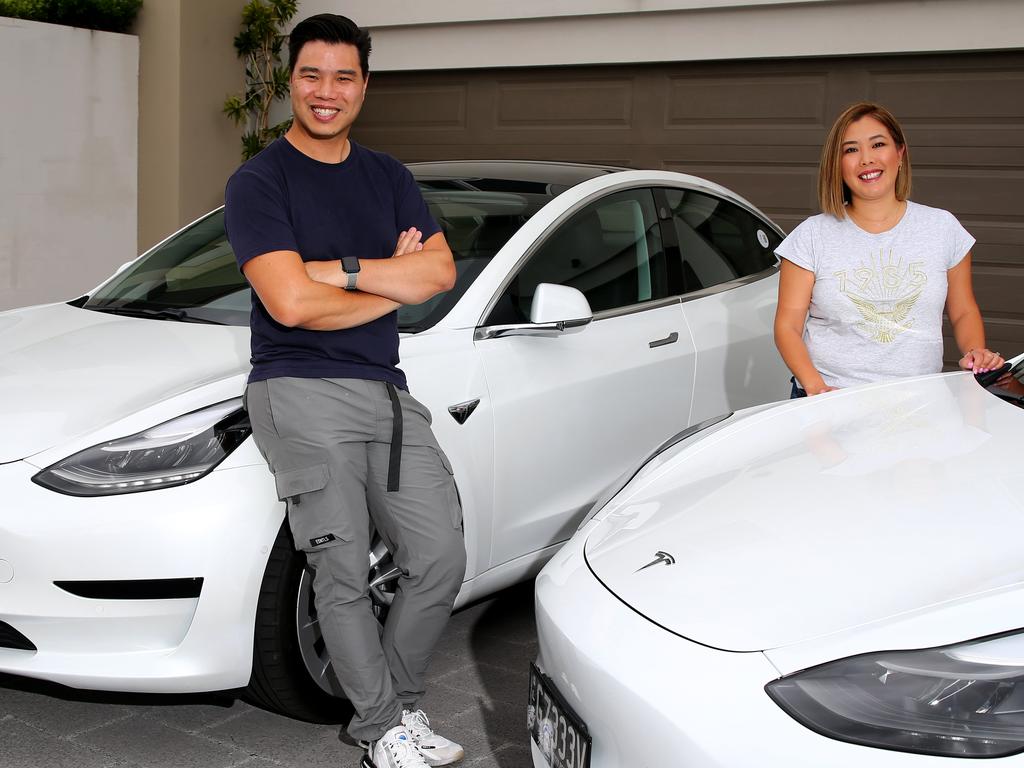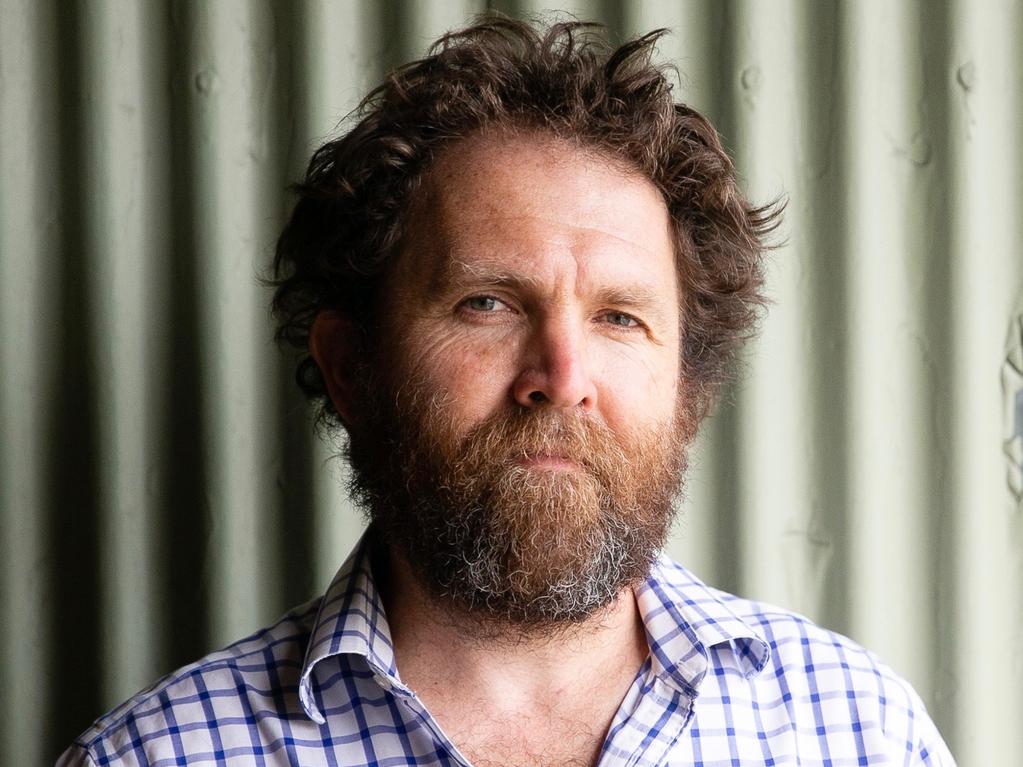How going net zero will save Queensland money on energy bills
Queenslanders can make simple, fast changes to their energy usage and petrol bills by choosing greener ways to live.
Queenslanders could save almost 50c every time they have a shower, slash their heating costs by two-thirds and make a cup of tea for just one cent, astonishing new research shows.
The analysis, commissioned by The Courier Mail, also reveals car fuel costs could be cut by more than half after households are converted to renewable energy.
The research breaks down figures contained in the newly released Rewiring Australia report by globally renowned Australian energy guru Saul Griffith, who is now an energy adviser to the US government.
Rewiring Australia found that by 2030, the average Australian household could save $5,000 to $6,000 a year on energy and vehicle costs compared to now by replacing gas and coal-fired electricity with renewable power augmented by heat pumps.
But the breakdown commissioned by The Courier Mail reveals that consumers could in fact see massive savings by 2025, especially if they are using solar power – which is now increasingly available with no-upfront cost.

This includes slashing the cost of home heating from an average of $1.98 a day with gas to just 59c a day with an electric heat pump powered by solar. Average car fuel costs would also be cut from 12c a kilometre for a petrol vehicle to just 5c per kilometre for an electric vehicle.
The analysis has even broken down the cost of having a “luxurious shower”, showing it would drop from an average of 66c with gas hot water to just 20 cents with a solar powered heat pump.
And the cost of making a cup of tea would fall from an average of 9c if boiled on a gas stove or 6c with an electric kettle to just 1c under financed solar power.
Dr Griffith, the founder and chief scientist of energy advisory firm Otherlab, said the transformation of suburban power supply would not just cut costs but also be a massive economic and employment boost.
“Rewiring our castles and cars is an enormous opportunity to demolish our power and petrol bills and generate tens of thousands of jobs for tradies,” he said.
“We need to grasp this opportunity. And if we do, the average household will save five grand on their power and petrol bill, every year. The future looks like vastly cheaper energy, better homes and nicer cars, healthier kids and cleaner waterways if we commit to electrification.”
While the “rewired” model is still in the future, households are already able to save money with renewables by using appliances while the grid is being powered by wind and solar and electricity is therefore cheaper.
One Australian company called Amber provides a service telling customers when the grid is flooded by green power.
“In order to move to a future powered by renewables, we need to give people an incentive and the technology to use cheaper renewable power when it is available,” co-founder Dan Adams said.
“The Amber model does this by giving customers direct access to the wholesale energy price so they can directly benefit from shifting their usage to times when renewables are plentiful.”
Dr Griffith said Australia was the best placed country in the world to benefit from clean energy.
“Australia, more than any other country, will benefit from rewiring,” he said.
“We already lead the world in harvesting solar which is why our rooftop solar is the cheapest delivered electricity anywhere in the world. With modest investment and solid commitment we can extend this lead and sell technology and the know-how of wiring it all together to the world.”
The straight-talking Dr Griffith, a Sydney-born engineer who obtained his PhD at the world-renowned Massachusetts Institute of Technology, is widely regarded as a world leader in new energy systems and an adviser to US President Joe Biden.
He said a switch to electricity would make individuals healthier and also improve Australia’s national fuel security.

“Replacing our carbon-heavy devices with clean electrical ones will also make us healthier and more self-reliant,” he said. “Rewiring means cleaner air inside our homes and vehicles and less reliance on imported diesel and petrol.”
Dr Griffith, an outspoken optimist about Australia’s future, also said it would be “awesome”.
“Electric technology will be awesome fun. Electric jet skis, dirt bikes and boats are on their way. I can personally guarantee that you can do an excellent doughnut in an electric ute,” he said.
“Rewiring is the fastest, cheapest and best way to drive down fossil fuel emissions in our homes and cars. All the technology is here. We just need to get it into homes and driveways as quickly as possible. The next time the hot water service, space heater or gas stove fails, it should be replaced with an electric device, powered by solar.”
Pharmacy business owner Robert Lam said he bought his first Tesla in 2019, then another in 2020 for his mother and another in 2021 for his household.
“It’s kind of like if you went to a normal car dealer and they said by the way here is a discount card for 90 per cent off petrol for the rest of your life,” Mr Lam said
Mr Lam said his 4-year-old son used to ask “is electricity expensive” before turning the heater on.
Since joining Amber Electric, which only sell power that’s net-zero emissions either through carbon offsets or renewable energy credits, Mr Lam now saves 24 per cent of the capped price that electricity retailers can charge customers.
To top up his car Mr Lam said at a maximum it cost him $3, but if it was a typical sunny day it could cost as little as 3c.
“Once I’ve taken the kids to school and the sun is shining that’s when I fill up because that’s the cheapest, when the wind is blowing and the sun is shining,” he said.
Mr Lam said cutting down his carbon footprint, supporting renewable resources is just an added bonus to saving money, which he estimates to be about $7000 a year.
Originally published as How going net zero will save Queensland money on energy bills
Read related topics:Mission Zero


